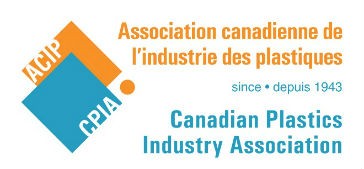Recent government policy announcements on plastics a step in the right direction, according to CPIA
Latest CCME and Ontario government policy could open window of opportunity for better management of plastic waste in Canada

The CPIA (Canadian Plastics Industry Association) has been working with Canadian Government policy makers, technology developers, industry and academia for over two decades to educate, to inform and to disseminate information on technological advances and sustainable industry practices worldwide. Following years of effort, according to the organization, it appears that governments have opened a window of opportunity to bring this well-informed perspective to government policies toward the management of plastic waste in Canada.
In the span of a few short days, both the CCME (Canadian Council of Ministers of the Environment) and the Ontario government via the Ministry of Environment, Conservation and Parks have made major policy announcements that include plastics. Highlights can be found below, along with the CPIA's take on impacts and next steps, according to a recently released Member's Alert from the organization.
At their most recent meeting held Nov. 23, CCME released their Strategy on Zero Plastic Waste. The first part of the announcement was an agreement to pursue a policy that recognizes plastics' essential role in the economy while focusing on preventing plastic waste and better managing this resource. The second part of the announcement was an agreement in principle to establish Canada-wide reduction targets for ALL waste (not just plastic waste). Canadians produce 706 kg of waste per person and the goal is to reduce this by 30% to 490 kg/person by 2030 and by 50% to 350 kg/person by 2040. An excerpt from the document is as follows:
"Ministers recognized the importance plastics continue to play in the economy and of supporting innovation for more sustainable solutions and technologies in waste management. Zero plastic waste does not mean eliminating the use of plastic products. Instead, the strategy calls for actions that lead to the prevention of plastic waste, as well as improved collection and cleanup. This would result in greater capacity to recover plastics' value and keep them in the economy and out of our oceans, lakes, including the Great Lakes, and other waterways and the natural environment. Protecting our terrestrial and aquatic environment from plastic pollution is imperative for the health of freshwater ecosystems, and is also important as the water and litter flow directly into oceans."
The plan takes a circular economy approach but focuses on:
• Preventing plastic waste, for example by designing plastic products for longevity and reparability, or reducing demand for disposable plastic items;
• Collecting all plastics, including through clean-up, so they are channeled back into the economy; and
• Recovering value from all plastics using a range of strategies and processes according to a hierarchy of priority.
The recognition of thermal processes to recover energy is an important addition to the treatment options and the movement to overall zero waste aspirational goals and zero plastic waste.
Next Steps: While there is much to like in this document, the CPIA says "we must remain vigilant as the Ministers develop an action plan to reduce waste per capita in general. CPIA will be reaching out to the CCME as soon as possible."
Ontario' Minister of Environment, Conservation and Parks - the Hon. Rod Phillips also released "Preserving and Protecting our Environment for Future Generations - A Made-in-Ontario Environment Plan (‘Plan')". The 53-page document is the government's overarching blueprint for environmental policy to address and meet the provinces climate change goals.
The CPIA says the Ontario plan is also significant to our industry as it supports all opportunities to recover the value of resources in the waste stream including plastics. CPIA and the plastics industry have been a proponent of integrated waste management systems and managing waste plastic resources through all 4R's - reduce, reuse, recycle and recovery - to maximize the benefits of plastics in a Circular Economy (CE) and Sustainable Material Management (SSM) lifecycle framework (https://www.epa.gov/smm).
This plan is also a first in Ontario waste resources management history to officially recognize the important role of chemical recycling and thermal treatment - along with reduction, reuse and recycling - in ensuring that the valuable resources in the waste stream do not end up in landfills. The plan
encourages:
• Increased recycling and new projects or technologies that recover the value of waste (such as hard-to-recycle materials);
• Cutting regulatory red tape and modernizing environmental approvals to support sustainable end markets for waste and new waste processing infrastructure;
• And (most importantly for plastics) support for sustainable end markets to recycle more materials and plastics.
According to the CPIA, it will be critical if the plastic industry is to meet our sustainability goals of 100% of plastics packaging is re-used, recycled or recovered by 2040, our industry will have to focus on increasing recycled content in products and packaging with our industry partners across the whole value chain and where no options exist, like the CCME announcement, recovering energy from waste plastics resources will be examined.
CPIA will comment on the Plan now posted to the Environmental Registry (EBR) website https://ero.ontario.ca/notice/... , for a 60-day public consultation period (i.e. January 28, 2019).
Company info
5955 Airport Road, Suite 125
Mississauga, ON
CA, L4V 1R9
Website:
plastics.ca/home/index.php



